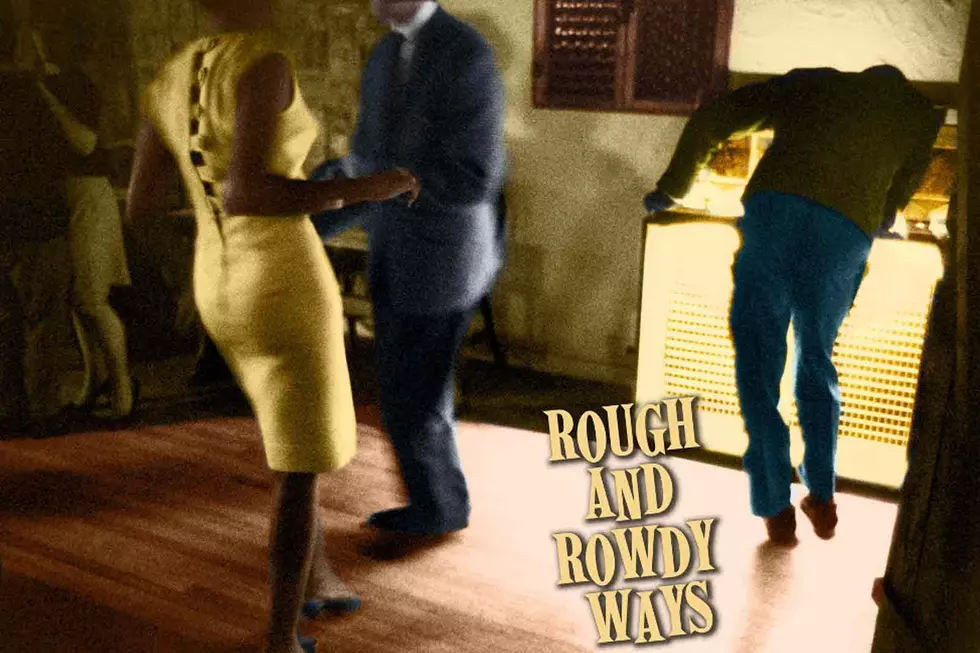
Bob Dylan, ‘Rough and Rowdy Ways': Album Review
Bob Dylan spent most of the '10s looking back.
Besides an album of new material in 2012, Tempest, the legendary singer-songwriter used the bulk of the past 10 years cleaning out his vault with various archival projects, including seven volumes of his Bootleg Series, and recording six LPs' worth of standards that dated back to the '40s.
Rough and Rowdy Ways, Dylan's 39th album, is in some ways a nostalgic look back too. Its centerpiece, the sprawling, 17-minute closer "Murder Most Foul," details the 1963 assassination of President John F. Kennedy down to various conspiracy theories and its Dylanesque connection to Eagles, Fleetwood Mac and Woodstock.
And it doesn't stop there. The album is full of name checks, references and direct lines to 20th century cultural touchstones – from political and geographical talking points to life-long influences and his musical peers that helped shape the rock 'n' roll landscape in the '60s.
It all unravels at a pace that's befitting the 79-year-old Dylan: grizzled, ornery, wizened and loaded with musical signposts from genres that were barely still in style when he was born. Like the albums that have marked his past quarter century – starting with 1997's Time Out of Mind and going through to the recent trilogy of Shadows in the Night, Fallen Angels and Triplicate – Rough and Rowdy Ways is a road map of the people, places and events that have dotted the last century.
So, when Dylan sings, "I’ll take the Scarface Pacino and The Godfather Brando / Mix ‘em up in a tank and get a robot commando," you know he's done his homework. Or maybe he's just just throwing together some of his favorite movies. Whatever the case may be, the references come quick and often here. In a career filled with timely records (going all the way back to his earliest songs, when he was still called a folk singer), Rough and Rowdy Ways is one of his timeliest. Even with much of it drawing inspiration from the decades before the 2000s even started, the album sounds like a census of modern times, more so than the LP that had that title back in 2006.
Dylan has always been like that. His stretch of mid-'60s classics came at a time when rock 'n' roll was being rewritten by new trailblazers like himself and the Beatles; in the '70s he tried on everything from diary-revealing singer-songwriter to minstrel troubadour. Then there's his kick-starting country-rock, finding salvation in the words of Jesus Christ as Reagan reigned and those late-career classics that have somehow anticipated and summed up post-9/11 anxieties as they mined the past for inspiration.
The looming dread surrounding Rough and Rowdy Ways' "I Contain Multitudes," "False Prophet," "Black Rider," "Goodbye Jimmy Reed" and "Murder Most Foul" can pretty much serve as the soundtrack to 2020. "Another day of anger, bitterness and doubt," he sings on top of a bluesy stomp during "False Prophet," summing up lots of people's moods in this day of pandemic, racial discrimination and incompetence in the White House.
But there's humor here too. You can almost hear Dylan singing many of these lines with a wide smirk. Even when he's detailing the catalytic killing of JFK, he turns "Murder Most Foul" into a checklist of songs, artists and actors that somehow sound perfectly in place within the context: "What's new, pussycat? What'd I say? I said the soul of a nation been torn away."
The songs are long, but not needlessly so. The wordy narratives really wouldn't make much sense any other way. Like a classic novel that rewards repeated readings, Rough and Rowdy Ways immediately comes off like a significant work, but benefits from deeper explorations. What may seem like a tossed-off line at first gains importance later; likewise, quoting an Eagles song may mean nothing more than that Dylan really likes "Take It to the Limit."
That mix of mystery and mischievousness has always been part of Dylan's appeal. Has any artist gone so far out of his way to confound and alienate fans? His records in the 2000s have gotten more earnest – "I've Made Up My Mind to Give Myself to You" here is among Dylan's most heartfelt love songs – but didn't those standards albums seem a little like a test by the time we got to the final three-LP release? Rough and Rowdy Ways is classic Dylan, right down to the album-closing epic.
Like Tempest, the record can get dark in its examination of America. "Go home to your wife, stop visiting mine," he warns on "Black Rider." "One of these days I'll forget to be kind." It can also be exhausting in its scope and sprawl. Dylan's voice – which has progressively aged into a soggy croak – suits the material here, way better than it did on those Sinatra-channeling American Songbook albums. But there are still a few hurdles to overcome; particularly, the last third seems to be biding its time by building to the majestic "Murder Most Foul."
But when that payoff comes, hold on. It's a sign of the times that a 17-minute song based on a killing that happened almost 60 years ago is the launching point for one of the most relevant pieces of music to be released this century. "Murder Most Foul" is the sort of song that will inspire college theses and endless dissections long after we've moved on from 2020's hell. It's Shakespearean in both its influence and breadth, and if it ends up Bob Dylan's last masterpiece, it's fitting. No other artist has surveyed his time and place with such insight and wit while carving out a legacy one well-timed work at a time.
Bob Dylan Albums Ranked
More From Ultimate Classic Rock









